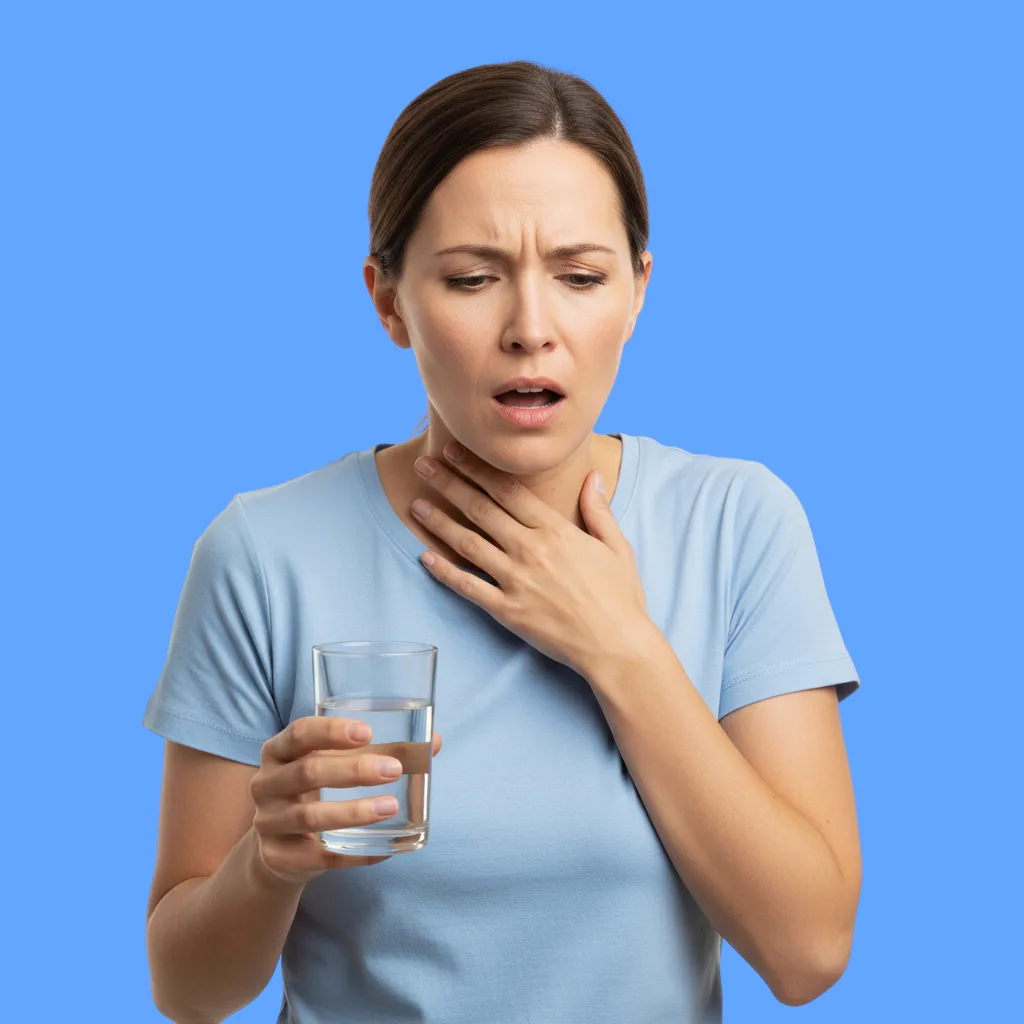What is gastroesophageal reflux disease (GERD)?
GERD is a common condition that occurs when stomach acid frequently flows back into the esophagus, causing an uncomfortable burning sensation in the chest or throat.
Normally, there is a muscle called the lower esophageal sphincter that acts as a valve to prevent stomach contents from returning. But when this muscle weakens or relaxes, acid leaks into the esophagus, leading to irritation and inflammation.
This condition may start mildly, but if left untreated, it can affect quality of life and lead to serious complications.
What are the causes of GERD?
There are several common causes of GERD, including:
- Weakness or relaxation of the lower esophageal sphincter
- Obesity and excess weight
- Hiatal hernia
- Pregnancy
- Smoking
- Eating large meals or eating right before bedtime
- Consuming fatty, fried, or spicy foods
- Drinking alcohol, coffee, or carbonated beverages
- Taking certain medications like aspirin and anti-inflammatory drugs
What are the common symptoms of GERD?

Several symptoms may be experienced by the patient, including:
- Heartburn
- Difficulty swallowing
- Regurgitation of food or sour liquids into the mouth
- Feeling of a lump in the throat
- Chronic cough, especially at night
- Laryngitis or hoarseness
- Sleep disturbances
- Bitter or sour taste in the mouth
When should you see a doctor?
It is advised to consult a doctor promptly if any of the following occur:
- Persistent difficulty swallowing
- Unexplained weight loss
- Bleeding or vomiting blood
- Anemia
- Symptoms persist despite home treatment
- Severe chest pain resembling heart pain
How is GERD diagnosed?
The condition is diagnosed using several methods, including:
- Upper endoscopy: to examine the esophagus and stomach using a small camera
- Acid test: to measure the amount of acid refluxing into the esophagus
- Esophageal manometry: to assess the strength and coordination of esophageal muscles during swallowing
- X-ray with barium swallow: to visualize the upper digestive tract and detect abnormalities
What are the treatment options for GERD?
There are several ways to treat GERD, including:
Lifestyle changes
- Weight reduction
- Quitting smoking
- Avoiding reflux-triggering foods
- Elevating the head during sleep
- Not eating within four hours before bedtime
Medication
- Proton pump inhibitors (PPIs) like omeprazole, pantoprazole, lansoprazole
- H2 blockers like famotidine, ranitidine
- Antacids for temporary symptom relief
Surgery
- In severe cases that do not respond to medication
Can GERD be cured?
Yes, GERD can be well-controlled through consistent treatment and lifestyle changes. In mild cases, symptoms may disappear completely.
In chronic cases, ongoing treatment may be necessary to maintain quality of life and prevent complications.
What are the prevention tips for GERD?
Here are some tips to help prevent GERD:
- Maintain a healthy weight
- Avoid smoking and alcohol
- Eat small, balanced meals
- Do not lie down immediately after eating
- Avoid spicy and fatty foods
- Elevate the head during sleep
- Chew food well and eat slowly
What are the possible complications of GERD?
Some complications may occur if the condition is neglected, such as:
- Esophageal narrowing due to scarring
- Open ulcers in the esophagus
- Barrett's esophagus (potential precancerous changes)
- Chronic laryngitis
- Breathing problems like asthma or chronic cough
Frequently asked questions about GERD
Does GERD cause chest pain similar to heart pain?
Yes, sometimes the chest pain from GERD resembles heart pain.
Can GERD disappear completely?
In mild cases, yes. But chronic cases require ongoing monitoring.
Does GERD affect the voice?
Yes, it may cause hoarseness or laryngitis.
Can I drink coffee if I have GERD?
It's best to avoid it, as it may worsen symptoms.
Does GERD affect sleep?
Yes, especially if reflux occurs at night.